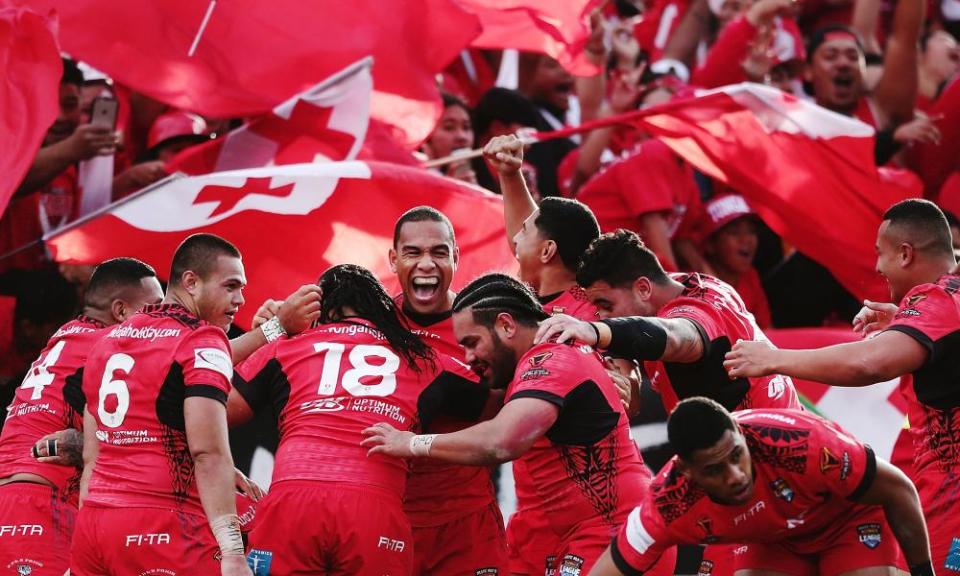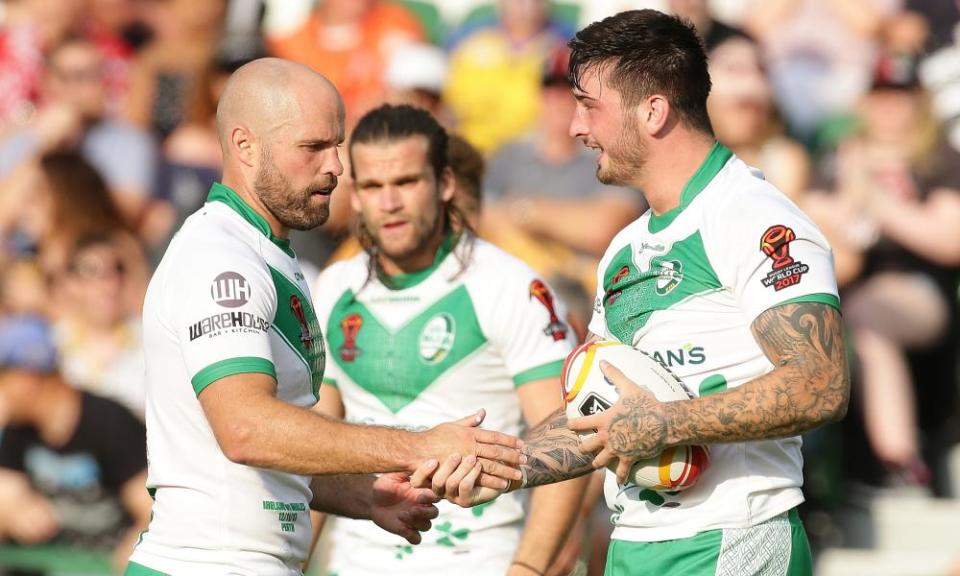World Cup climax can be the catalyst for rugby league to take new direction | Aaron Bower

As the World Cup enters the knockout stages it is difficult to gauge the mood surrounding what should be the sport’s most important and prestigious tournament.
While things have played out largely as expected, it is the feelgood stories that will live longest in the memory. Whether it is the way Papua New Guinea have proved to be such wonderful hosts, playing in front of sellout crowds in Port Moresby, Samoa and Tonga’s spine-tingling pre-game tête-à-tête or the encouraging progress of some smaller nations, there is much to sit back and smile about.
But even here, on what ought to be the sport’s biggest stage, the first three weeks represent a microcosm of the wider problems rugby league faces. Not enough people have seen, heard or even know about the must-see moments the tournament has generated.
Will the knockout stages, beginning on Friday when the hosts and world champions Australia face Samoa, change that? Perhaps. It is inevitable that as the final approaches there will be a pick-up in interest – even if the Kangaroos saunter their way through to Brisbane on 2 December as many expect.
To only tune in now would mean you have missed those moments of encouragement that confirm what so many still believe – only with a stronger international game can rugby league begin to attract mainstream interest. The domestic game rules the roost in rugby league, and convincing the clubs more international windows are of paramount importance should be this tournament’s legacy, irrespective of the winner.
Quarter-finals (times local/GMT)
Australia v Samoa Darwin, 17 Nov (7pm/10.30am)
Tonga v Lebanon Christchurch, 18 Nov (5pm/5am)
NZ v Fiji Wellington, 18 Nov (7.30pm/7.30am)
England v PNG Melbourne, 19 Nov (4pm/6am)
Who are the favourites?
Australia have won 10 world titles including the last World Cup in 2013 (pictured). They are hot favourites to retain the trophy in Brisbane on 2 December, but are likely to face New Zealand in the first semi-final, also in Brisbane. England are seeking their first final appearance since 1995 and are expected to face surprise package Tonga in the second semi-final in Auckland.
Six northern hemisphere teams bowed out in the group stages – with the unluckiest of those undoubtedly Ireland. By far the weakest of the home nations in recent years, a swell in the number of heritage players putting up their hand to play for the Wolfhounds saw them win two of their three group games, yet they still failed to qualify from Group C.
That is another gripe about the format. Try explaining to a casual Irish sports fan why their nation failed to qualify yet Samoa, who did not win a game in the group stages, play Australia in the first quarter-final on Friday. Thankfully, the increase to 16 teams for the 2021 World Cup will ensure this convoluted nonsense is a thing of the past. Scotland and Wales were much more disappointing, although the Bravehearts at least finished with a fine draw against Samoa before heading home.
England, as expected, had enough to win against Lebanon and France to finish second behind the Kangaroos, with Papua New Guinea their opponents in Melbourne on Sunday. By the time they play, we will know the other three semi-finalists. Should Australia progress as expected, they will face the winners of New Zealand v Fiji.

Before the tournament began, it was tipped that the traditional “big three” of Australia, England and New Zealand were about to be joined by a fourth powerhouse in Tonga. Did they deliver? You bet. Their victory against the Kiwis in Hamilton last weekend to win Group B and consign New Zealand to a likely semi-final against Australia suddenly throws the complexion of the knockout stages into uncharted, exciting territory.
It will have raised a smile from England for sure, who now know they can avoid the Kiwis in the semi-finals, with either Tonga or Lebanon waiting if they see off PNG. That is surely good news, given their wretched record against New Zealand in recent times but Tonga’s emergence and England’s uninspiring performances means a first final appearance since 1995 is by no means a guarantee.
That the six teams who have been eliminated all hail from the northern hemisphere is another telling sign, too. The player pool is significantly larger south of the equator and arresting that trend will take years, maybe even decades. More importantly, it will take financial investment and a change to a schedule in Britain where there is barely time to draw breath, let alone craft out an international break for a Six Nations-style tournament to try to grow the game where it desperately needs it most.
Ironically, and not for the first time, rugby league’s biggest obstacle is none other than itself. What we have seen so far has been everything we should expect from a World Cup but the business end, on and off the field, starts here. Crucially, there could yet be a couple of twists and turns which serve as a wake-up call that maybe, just maybe, international rugby league is worth prioritising.

 Yahoo Sport
Yahoo Sport 





































